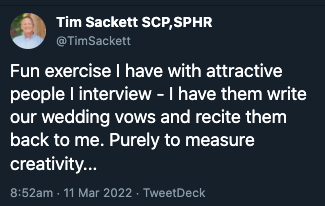In 1942 Viktor Frankl, a prominent Jewish psychiatrist, was taken to a Nazi concentration camp with his wife and parents. Three years later, when his camp was liberated, his pregnant wife and parents had already been killed by the Nazis. He survived and in 1946 went on to write the book, “Man’s Search For Meaning“. In this great book, Frankl writes:
“It is the very pursuit of happiness that thwarts happiness.”
What Frankl knew was that you can’t make happiness out of something outside yourself. Riding a Jetski doesn’t make you happy. You decide to be happy while doing that activity, but you could as easily decide to be angry or sad while doing this activity (although Daniel Tosh would disagree!). Frankl also wrote in Man’s Search for Meaning, “Everything can be taken from a man but one thing, the last of the human freedoms — to choose one’s attitude in any given set of circumstances, to choose one’s own way.”
I get asked frequently by leaders about how they can make their employees or workplace happier. I want to tell them about Frankl’s research and what he learned in the concentration camps. I want to tell them that you can’t make your employees happy. They have to decide they want to be happy, first. But, I don’t, people don’t want to hear the truth.
Coming up with ‘things’ isn’t going to make your employees happy. You might provide free lunch, which some will really like, but it also might make someone struggling with their weight, very depressed. You might give extra time off and most of your employees will love it, but those who define themselves by their work will find this a burden.
Ultimately, I think people tend to swing a certain way on the emotional scale. Some are usually happier than others. Some relish in being angry or depressed, it’s their comfort zone. They don’t know how to be any other way. Instead of working to ‘make’ people happy, spend your time selecting happy people to come work for you.
In the middle of a concentration camp, the most horrific experiences imaginable, Frankl witnessed people who made the decision to be happy. Maybe they were happy to have one more day on earth. Maybe they were happy because, like Frankl, they discovered that the Nazis could take everything from them except their mind.
Provide the best work environment that you can. Continue to try and make it better with the resources you have. Give meaning to the work and the things you do. Every organization has this, no matter what you do at your company. Don’t pursue happiness, it’s a fleeting emotion that is impossible to maintain. Pursue being the best organization you can be. It doesn’t mean you have to be someone you’re not. Just be ‘you’, and find others that like ‘you.’


